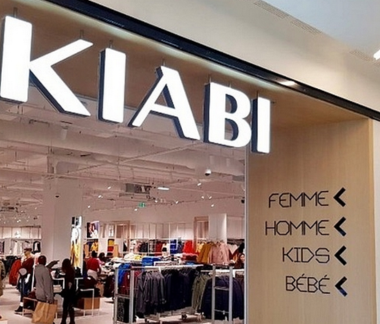New customs regulation from 1st July
EU strengthens customs policy
Faced with the intensification of global trade, the European Union has decided to change its regulations concerning the entry of small goods from outside Europe. The aim is twofold: to fight fraud and to restore fairness between online and local trade.
Since 1 July, all small goods from outside the EU are now subject to :
- A dematerialised electronic declaration obligation.
- To the payment of VAT regardless of the value of the goods (until now an exemption applied to shipments of less than €22) and to the payment of customs duties when the amount exceeds €150.
These provisions apply to all importers, not just La Poste. "Two years ago, La Poste launched a major project to transform customs-related processes by bringing together skills from across the Group," explains Eric BOISSAU, Viaposte's Project Director and the project's pilot.
"Two years ago, La Poste launched a major project to transform its customs processes by bringing together skills from across the Group," explains Eric Boissau, Viaposte's Project Director.

Within the framework of this project, the solutions proposed by La Poste to apply the new regulation meet two objectives
Automate customs declarations
- Either from the data transmitted electronically by the sending customers or by the Foreign Posts.
- Or, in the absence of electronic data, by reconstructing the customs data from the information sent at the time of dispatch.
- If no data are available to declare the items, they are returned to the sender abroad.
Maximising collection before distribution
- Encouraging e-retailers to collect VAT at the time of online purchase: this is the most convenient and least expensive solution for customers. The largest e-commerce platforms (Amazon, Alibaba, eBay, etc.) offer this service to their customers.
- By offering recipients to pay VAT on www.laposte.fr. To do this, a notification is sent by email or sms to the recipients to invite them to pay their taxes before the items are delivered.
- Otherwise, recipients can pay the amounts due to the postman when the items are delivered or when they are handed in at the post office. This results in higher customs clearance and collection costs.
"Viaposte is at the heart of the logistics of small international goods on behalf of Asendia and Colissimo. Our business was bound to be affected by this new situation, so it was essential for us to play an active role in the design and implementation of this project," explains Eric BOISSAU
What is changing for La Poste and its subsidiaries?
Increase in goods subject to customs duties
The collection of VAT and customs duties on imported items by the postman or in the post office is not a new activity. This has been the case until now, but for far fewer items. The procedures of postmen and post offices have been automated to facilitate the daily relationship of postmen with their customers.
With the new regulation on taxation from the first euro, the number of small postal goods declared will increase sharply: by the end of the year, an average of 500,000 items a day will pass through postal customs. This figure is likely to increase if the unprecedented growth in online shopping, which has been observed for several years, continues in the years to come.
Processing processes are also changing
Several years ago, La Poste undertook a complete overhaul of its international mail processing sites based at Roissy for mail, and recently opened a brand new platform in Wissous for parcels.
Viaposte, partner in this change
Partner in the development of I.S. solutions
Customs clearance operations require an advanced information system, combining advanced OCR and artificial intelligence solutions to declare up to 500,000 items per day.
As an industrial integrator, Viaposte provided the system to read and interpret this information from the address label.
In addition, Viaposte has developed a remote coding solution to fill in missing customs data on declarations. Viaposte will manage and coordinate the various postal platforms that will carry out this coding (2 for the time being, other platforms will be integrated into this process later).
Partner in logistics processing
Finally, all small goods that pass through the Roissy Postal Hub on arrival in France are then processed at the Viaposte platform in Chelles. Since 1 July, a customs service has been present in Chelles to complement the work of the Roissy customs officers. These customs officers carry out the regulatory controls that allow goods to be authorised to travel on French territory. It is on this condition that the objects can be delivered.
Change for all
These new European measures are very structuring for online commerce
They force all players to adapt quickly to a more level playing field, but also more rigorous in their application.
E-buyers will quickly see the change
Either on e-commerce sites that include the taxes to be paid at the time of purchase, or when the products arrive, when they are asked to pay the taxes before the shipment is delivered. Consumers will therefore be well advised to choose e-commerce sites that integrate these taxes: items will move more easily, arrival procedures will be less complicated, and customs clearance costs will be reduced.







